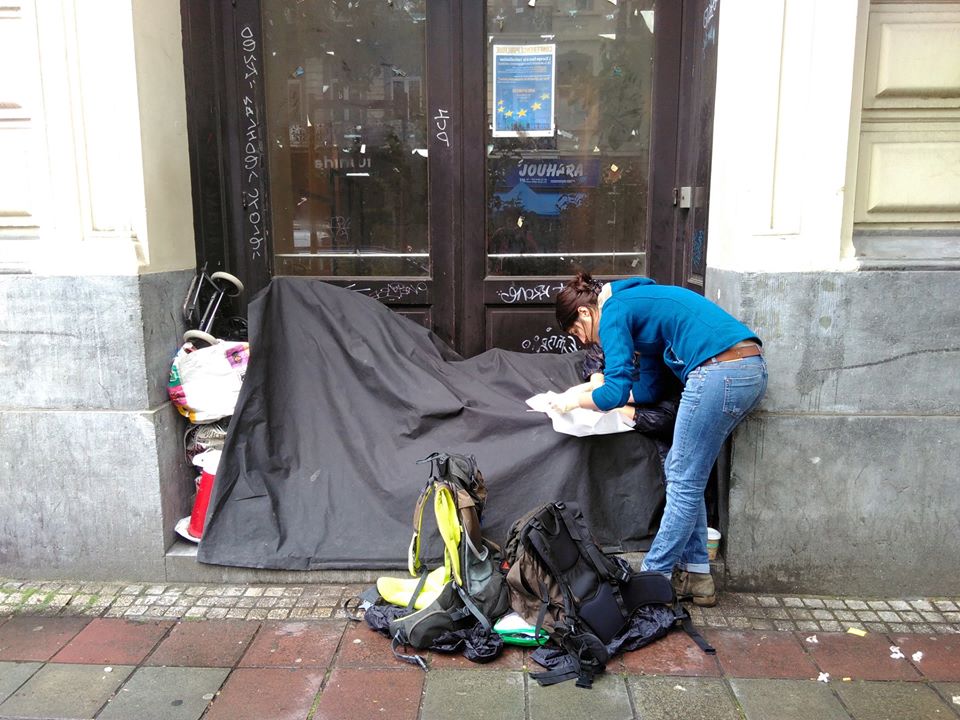The charity Infirmiers de Rue (Street Nurses) has called on the government to carry out proactive testing on the homeless for the new coronavirus (Covid-19).
“Homeless people are these days almost the only people left behind on the streets,” the organisers say in a communique.
“The advice to stay home and wash your hands regularly is for them an empty instruction. And yet these men and women run a real risk of infection, and are in danger of becoming a source of contamination of others.”
The commendable idea of bringing the homeless to a safe place and putting them in collective shelters, the group says, “increases the risk of the virus spreading within this extremely vulnerable target group and therefore also within society in the long term.”
The organisation is calling on the government to introduce a programme of systematic testing of homeless people for the virus, so that those who are actually sick may be isolated, and their recent contacts investigated in turn.
Others, who are not infected, can still be given shelter and protection.
“This is the only way to provide them with worthwhile and humane support in line with the emergency provisions of public health policy,” the group says.
From experience with other infectious diseases such as scabies and tuberculosis, the Street Nurses know, the communique says, that bringing people together indiscriminately makes it harder, not easier, to first protect against the spread of disease, and later to combat infections.
In the particular case of the coronavirus, half of all those who become infected display no symptoms, which means they continue to be a danger to others.
“Qualitative investigation by testing puts us in the position of being able to isolate effectively those who require it, and to accommodate the others safely,” said the charity’s medical coordinator Pierre Ryckmans.
Infirmiers de Rue / Straatverplegers is a non-profit medical-social organisation created in 2005, based in Brussels and Liege, which offers support to the long-term homeless and aims to guide them towards a permanent home.
“Attention for their hygiene, health and self-esteem, cooperation with other organisations and the creation of housing accommodation, as well as the mobilisation of the public, are our most important tools.”
Alan Hope
The Brussels Times

